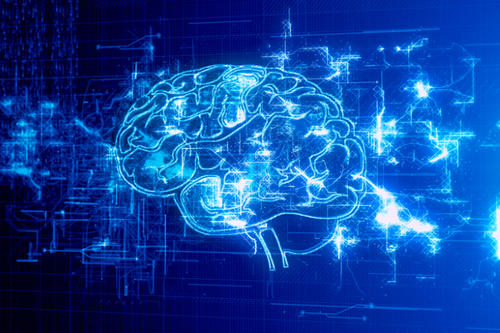University of Minnesota receives $9.9M federal grant to establish new center for the brain science of addiction

According to the Minnesota Department of Health, an estimated 450,000 to 500,000 Minnesotans struggle with a substance use disorder. To help address this problem of addiction in Minnesota and beyond, the National Institutes on Drug Abuse (NIDA) has awarded the University of Minnesota $9.9 million to establish the Center for Neural Circuits in Addiction.
An interdisciplinary team of University faculty, students and staff will create tools to transform researchers’ ability to discover how the brain changes with addiction at the Center. Their findings can be leveraged to develop new treatments. The Center for Neural Circuits in Addiction will also raise awareness of the biological basis of addiction.
“We want to emphasize that addiction is not a failure of moral character or will,” said Mark J. Thomas, a professor and director of the Medical Discovery Team on Addiction in the Medical School, who is leading the Center. “It’s a serious and chronic brain-based medical condition in need of much better treatments. Addiction and relapse result from changes to neural circuits through repeated exposure to drugs in some people. The Center will enable researchers and scientist-clinicians to better understand how the circuits that control emotions, motivation and decision-making are altered by addiction and recovery. This is essential to finding new, more effective therapies.”
The Center for Neural Circuits in Addiction will establish four research cores dedicated to developing specific kinds of research tools to:
-
Develop novel genetic approaches for the experimental study of the anatomical, cellular, and molecular bases of addiction. Led by Kevin Wickman, Medical School; and Daniel Schmidt, College of Biological Sciences.
-
Enable state-of-the-art mapping of the anatomy of brain circuits using new, innovative approaches and methods. Led by Paul Mermelstein, Medical School; Sarah Heilbronner, Medical School; Mark Sanders, Medical School; and Thomas Pengo, U of M Informatics Institute.
-
Develop and offer a range of cutting-edge imaging tools that permit researchers to monitor brain activity. Led by Timothy Ebner, Medical School; and Suhasa Kodandaramaiah, Medical School and College for Science and Engineering.
-
Create a big data computational platform that integrates findings across many types of experimental studies to reveal the relationships between exposure to addictive drugs, brain circuits and addictive behavior. Led by Benjamin Hayden, Medical School; Anna Zilverstand, Medical School; and Jan Zimmermann, Medical School.
These cores will enhance researchers’ capacity to measure and intervene in specified neural circuits affected by addiction. They will also provide expertise and training to help University researchers and beyond use these innovations in their research.
In collaboration with the Medical Discovery Team on Addiction, the Center for Neural Circuits in Addiction will encourage new research in these areas through a grant program designed to support innovative faculty projects that combine the capabilities of two or more research cores and push the envelope in neural circuit research.
“We are especially grateful to the people of Minnesota and the state Legislature,” said Thomas. “My team and I are committed to making good on these investments for the benefit of patients and their families.”
"Cross-disciplinary research is essential to making transformational discoveries. The University has amazing strengths in the basic, translational and clinical neurosciences, as well as engineering, and a strong history of collaborating across those disciplines to benefit patients, “ said Jakub Tolar, MD, PhD, dean of the Medical School and vice president of Clinical Affairs. “That, together with strong state and institutional support for addiction research and translational science makes the University of Minnesota the perfect place for this important research center on addiction.”
Additional funding support for the Center for Neural Circuits in Addiction is from the Medical Discovery Teams and MnDRIVE Brain Conditions, which are sourced by the Minnesota legislature. The center is an interdisciplinary team affiliated with the Medical School, Graduate Program in Neuroscience, Office of the Vice President for Research, and the College of Science and Engineering.
-30-
About the University of Minnesota
The University of Minnesota System, with campuses in Crookston, Duluth, Morris, Rochester and the Twin Cities, is driven by a singular vision of excellence. We are proud of our land-grant mission of world-class education, groundbreaking research and community-engaged outreach, and we are unified in our drive to serve Minnesota. Visit system.umn.edu.
- Categories:
- Health




